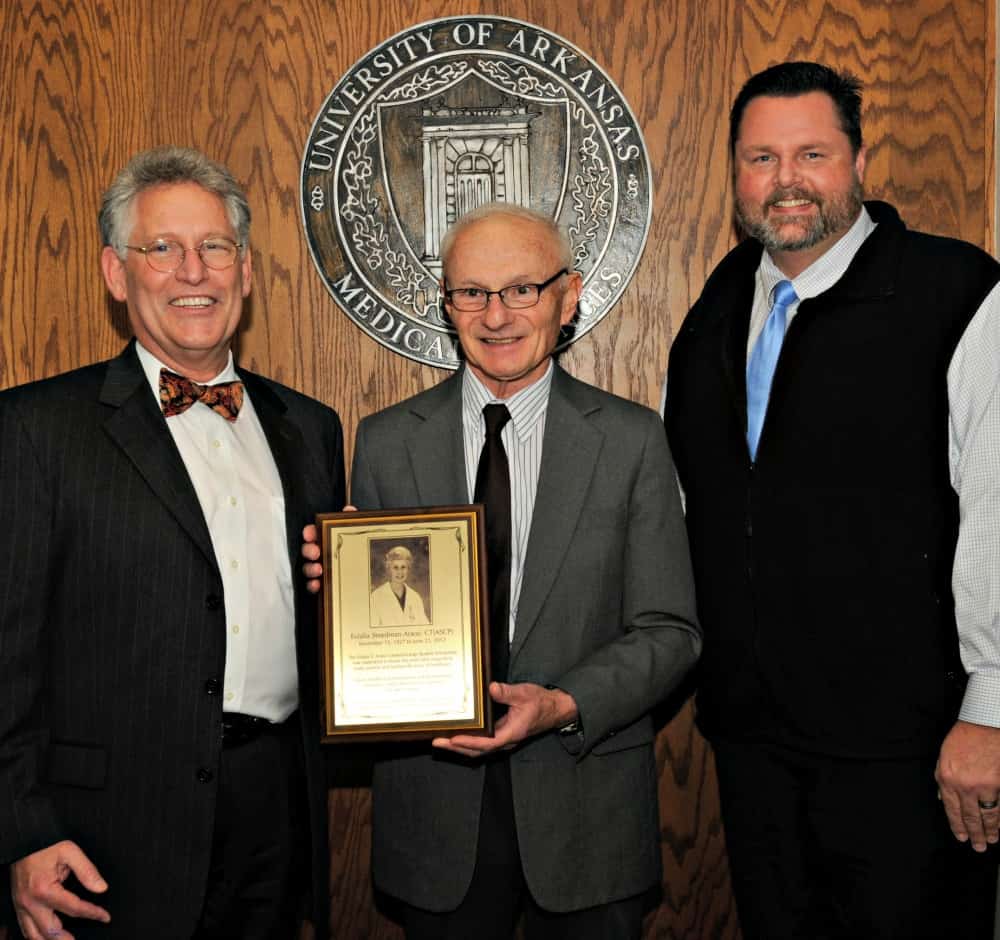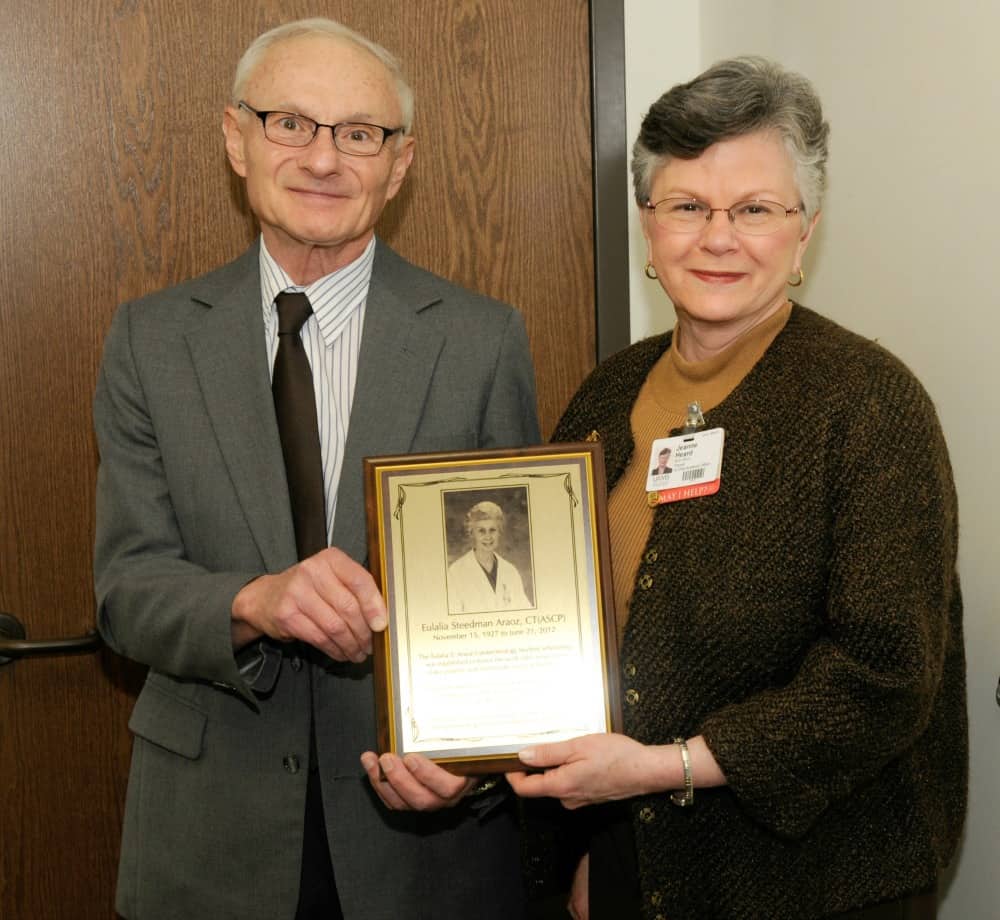Araoz Honors Memory of Wife with Scholarship in Cytotechnology

(From left) College of Health Professions Dean Douglas Murphy, Ph.D., Carlos Araoz, M.D., and Don Simpson, Ph.D., chair of the college’s Department of Laboratory Sciences, show off the plaque. Eulalia Araoz was a cytotechnologist for many years in the VA Hospital and help train Simpson in the profession.
Nov. 20, 2013 | Eulalia Steedman Araoz made many lasting connections through her life and work in the clinical labs at UAMS and the Veterans Administration Hospital next door. Now a scholarship endowed in her memory by her husband will connect future cytotechnology students to the profession she loved.
Retired pathologist Carlos Araoz, M.D., met her while he was in Oklahoma City in the 1960s. A friend introduced the Argentine pathology intern to Eulalia, who had a degree in Spanish. They clicked, married and later moved to Little Rock where she graduated in 1970 in the second class of the fledgling UAMS cytotechnology program while he worked as a pathologist at the VA Hospital.
She went to work in the lab at the VA hospital, which regularly hosted UAMS students from many programs for clinical rotations.
“When I saw that picture of her, I remembered meeting her when as a medical student, I went to the lab to deliver specimens at night,” said Jeanne Heard, M.D., Ph.D., UAMS provost, looking at the plaque commemorating the new Eulalia S. Araoz Cytotechnology Student Scholarship. “She was very nice and helpful and I am happy to see her remembered with this scholarship.”
Don Simpson, Ph.D., chair of the Department of Laboratory Sciences in the College of Health Professions, encountered Eulalia when he was a UAMS cytotechnology student in the late 1980s.
“She trained me and was a very special mentor to so many students and fellows — exemplifying the work ethic required for making patients and families the focus of health care,” he said. “She came in early, stayed late and spent nights in the lab…doing whatever it took to get the results out.”
Eulalia Araoz retired from the VA hospital in 1994 after more than 20 years working as a cytotechnologist. She traveled with her husband to his various posts after that. They settled in Texas, where she died in 2012.
“She believed in her profession. Eulalia was absolutely committed to it,” Carlos Araoz said. “She felt patients benefited from the lab testing that cytotechnology allows, giving them early detection of cancer or infection.”
Creating the scholarship, he said, was a lasting way to honor her life and life’s work.
“She was a person who believed in education,” he said. “It gives me the best feeling that this could help someone continue on the path of education and maybe they will learn the benefits of sharing and helping others.”
The first Eulalia S. Araoz Cytotechnology Student Scholarship will be awarded in 2014.

